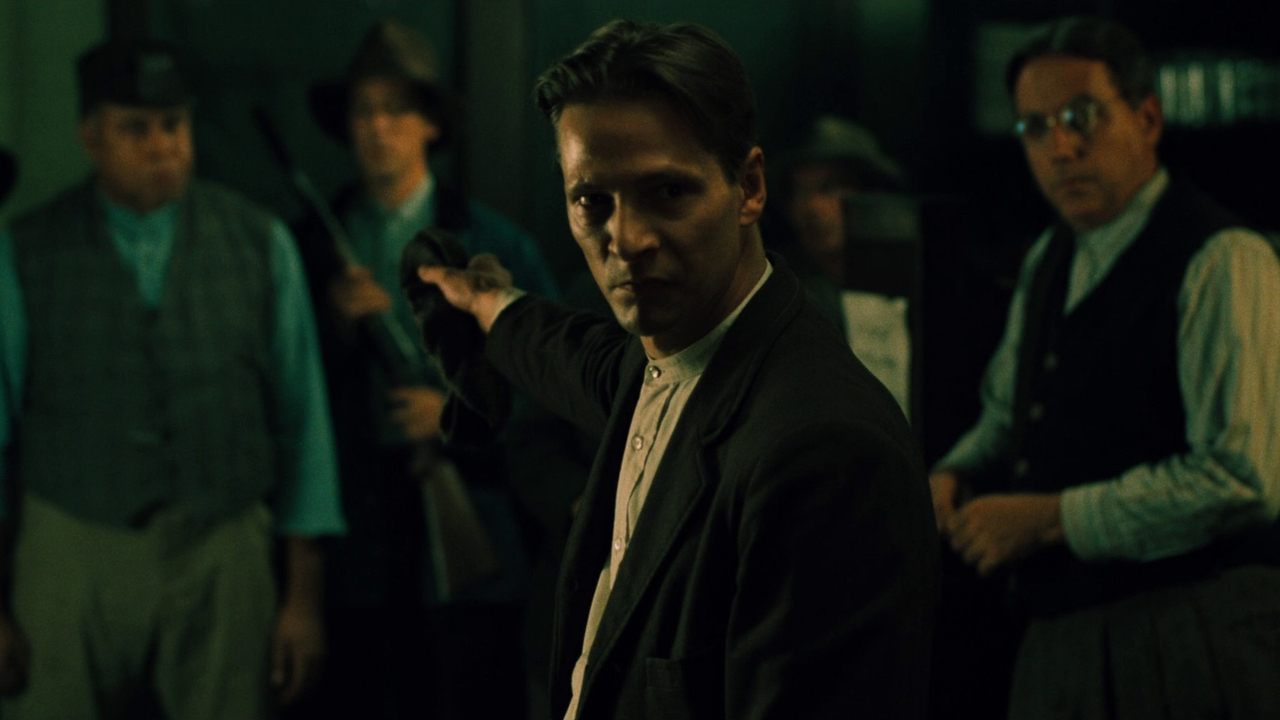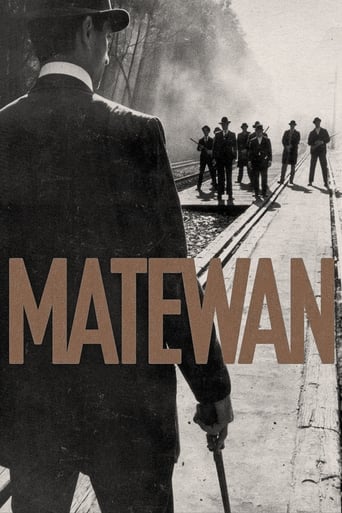



It is a performances centric movie
Bad Acting and worse Bad Screenplay
A Masterpiece!
This is one of the best movies I’ve seen in a very long time. You have to go and see this on the big screen.
View MoreGreat movie, perhaps the best labor drama since 1954's Salt of the Earth. I wasn't around in 1920, but the gritty "feel" of the times is present, in spades, along with the sheer poverty surrounding the mines. At the same time, we're made to feel the abominable safety conditions prevailing in the black holes. No, this film ain't going to play your local chamber of commerce anytime soon. After all, union organizer Kernehan (Cooper) isn't just an outsider, he's likely also a communist, though the script fudges the issue. The coal company is about to beat back the strikers with Negro and ethnic scabs, until the organizer arrives with a tactical sense of how to foil their plans. So now the company brings in two arrogant thugs to push the miners out of town. And we anticipate a dramatic showdown, but one that's also based on historical fact.I love the way Sayles refuses to prettify the mountain folk. In their plain print dresses and drab denim work clothes, they're the anti-Hollywood. And when chief thug Hickey calls winsome Bridey Mae "mountain trash", I wanted to reach through the screen and throttle him. I also love the moment when colored scab Few Clothes (Jones) enters the union meeting wanting to join up. It's an understandably hostile reception, until Kernahan defuses the hostility by telling the men to recognize a "worker" when they see one. And indeed, the strike won't succeed unless the racial and cultural differences are overcome. I like the way Sayles shows this overcoming in small steps, instead of rubbing our nose in it with a kumbaya moment.It's also apparent that religion plays a big part in how the mountain folk react to organizing efforts. The established preacher's (Sayles) message is to stick with the company and reject union troublemakers. For years, his message has prevailed. However, the kid preacher Danny (Oldham, in a gripping performance) is no longer just an oddity. Now he has seen the struggle, knows the sacrifices, and experienced the brutal company tactics. Thus, his movement toward the union message both helps galvanize the community, as well as reflects their becoming radicalized.I also like the fact that when push comes to shove with the company thugs, the town mayor and sheriff, defend their community. That's based on historical fact, and not what you'd expect when the company, in effect, owns the town (the houses and stores). But the allegiance of the two town officials is ultimately with the people instead of the owners. In fact, it's that growing sense of labor solidarity and community identity that create the force capable of standing up to the combined business interests that extend beyond the little town of Matewan.I guess my only reservation is with the two company thugs. Their arrogance, especially in the revival meeting, is spread on pretty thick. In effect, Sayles has stacked the deck by making them and the side they represent so dislikable. It doesn't reach the level of caricature, but it is manipulation, perhaps in a good cause, but manipulation nevertheless. On the other hand, the mountain folk are fortunately not romanticized or patronized. Instead, they come across as ordinary people finally responding to a bad situation that's only grown worse over time. Then too, Cooper's Kernahan is not romanticized as one might expect if this were a Hollywood treatment. He does intercede at important times, especially with his understanding that violence will only benefit the bosses. And though the unionists win the showdown, unless I missed something, we're not shown that they win the strike as a result.Anyway, in my little book, this is Sayles' biggest triumph. Filming on location was simply indispensable to the movie's gritty period feel. It's hard to believe that one man could be behind such a professional appearing production, especially as someone basically outside the movie-making industry. That, no doubt, accounts for the movie's willingness to take chances. I just wish the movie could be shown in every highschool history class. People need to be reminded why union's came into being, especially with so much anti-worker static being currently spun. Of course, no institution is above criticism, labor unions included. Nonetheless, America's bloody history of winning worker rights needs to be told each generation. Thanks John Sayles for resurrecting this important story.
View MoreThe movie matewan showed what capitalist oppression is all about. All the company goons and rentapigs were brutal to the miners and their family's.They should be burning in hell for what they did. The company's only think about making obscene profits from oppressed workers. The miners had to pay for supplies that the mine owners should have supplest. The miners were paid by how much coal was mined. They were paid in company scrip that was only good at the company store for overpriced goods. They got in debt to the coal company's for so much that they were afraid to leave to go work for anyplace else. Thank God for the UMWA who have improved the life of the coal miners. Karl Marx and Vladamir Lenin was right most company's are evil.
View MoreThis is a powerful film depicting both the conditions under which most mineworkers labored and the social conditions existing in the 1920-1930 era of our American history. It accurately portrays the manner in which powerful industrial interests manipulated the worker's economic dependency using 'script' issued in lieu of lawful and legal tender and controlled the acquisition of basic needs such as shelter, food, and clothing. By "owning" the stores, controlling employment, threatening the physical well-being of its employees, and hiring of thugs to intimidate individuals and their ability to implement any organized mutual assistance, these wealthy and powerful companies sought to (and succeeded in ) maximizing their profits by using the labor of the poor and impotent at almost no cost to the company.One needs to search intensely to finally reveal the true history of our period of industrialization. It is of great credit to the producer's and director's of such films as "Matewan" that we can see clearly the history and ongoing great struggle between the working class and the wealthy elite to obtain their proper share of "profits."This is a film where one enters a theater to be "entertained", but leaves having the stirrings of compassion and outrage raised in their hearts. It reminds us that there is a human price paid for economic gain.
View MoreThis 1987 film aims to document real events that concerned a small coal mining community (called Matewan) in West Virginia in 1920. The miners are trying to organize a union, much to the dismay of the company that employs them. All of the acting is great, including, in the starring role, Chris Cooper, (the Kansas City native who was the abusive father from American Beauty and who starred in another fantastic Sayles film from 1996, Lonestar), David Strathairn as the good-natured but stern police chief, and, in his only theatrical movie role ever (here at 14 years old), indie-folk legend Will Oldham, of Palace Music and Bonnie Prince Billie fame. He plays a preacher-in-training in the film, and does such a great job that it seems damn unfortunate for all of us that he didn't continue his acting career--though he would go on to make some great music, and continues to currently. It also features James Earl Jones, aka Darth Vader.Anyway, the film is very honest, subtle and exquisite. You don't feel, as you do with many films churned out by Hollywood, that things have been altered and embellished for the sake of making it interesting--it's very natural, and it seems very real. You're confidant that Sayles is giving you the truth here, as best he can, through his visual style, restrained, natural dialogue and engaging historic atmosphere.It's movies like this that renew my faith in period pieces. Important historical films at their best are able to capture a period and bring the audience as close as possible to experiencing the 'feel' of that time--I guess that kinda goes without saying though.
View More